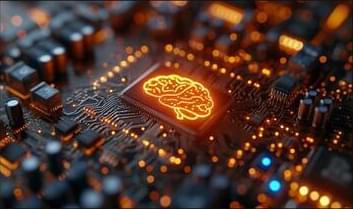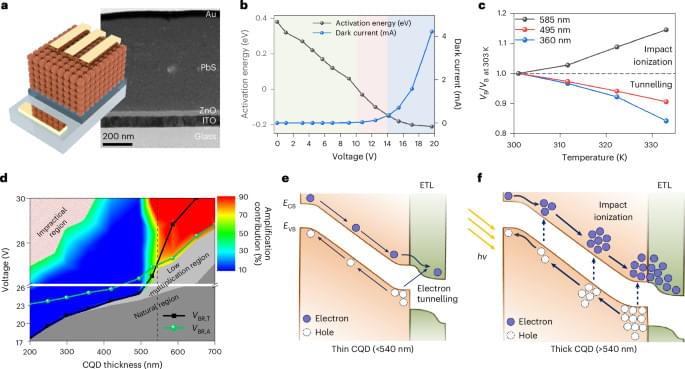First Israeli superconductor-based quantum computer supporting defense and civilian applications is now operational.



🤓 Check out my new quiz app ➜ http://quizwithit.com/ 💌 Support me on Donorbox ➜ https://donorbox.org/swtg



Artificial intelligence (AI) systems tend to take on human biases and amplify them, causing people who use that AI to become more biased themselves, finds a new study by UCL researchers.
Human and AI biases can consequently create a feedback loop, with small initial biases increasing the risk of human error, according to the findings published in Nature Human Behaviour.
The researchers demonstrated that AI bias can have real-world consequences, as they found that people interacting with biased AIs became more likely to underestimate women’s performance and overestimate white men’s likelihood of holding high-status jobs.

Researchers from Max Planck Florida Institute for Neuroscience have discovered a new pathway to forming long-term memories in the brain. Their work, published in Nature Neuroscience, suggests that long-term memory can form independently of short-term memory, a finding that opens exciting possibilities for understanding memory-related conditions.
Our brain works diligently to record our experiences into memories, creating representations of our daily events that stay with us for short time periods. Current scientific theories of memory formation suggest that short-term memories are stored in what we can imagine as a temporary art exhibition in our brain before being cleared out for representations of new experiences.
A tiny fraction of these short-term memories—those most relevant to us—are moved to a more permanent exhibit, our long-term memory, where they are stored for days, years, or decades.

While classical physics presents a deterministic universe where cause must precede effect, quantum mechanics and relativity theory paint a more nuanced picture. There are already well-known examples from relativity theory like wormholes, which are valid solutions of Einstein’s Field Equations, and similarly in quantum mechanics the non-classical state of quantum entanglement—the “spooky action at a distance” that troubled Einstein—which demonstrates that quantum systems can maintain instantaneous correlations across space and, potentially, time.
Perhaps most intriguingly, the protocol suggests that quantum entanglement can be used to effectively send information about optimal measurement settings “back in time”—information that would normally only be available after an experiment is complete. This capability, while probabilistic in nature, could revolutionize quantum computing and measurement techniques. Recent advances in multipartite hybrid entanglement even suggest these effects might be achievable in real-world conditions, despite environmental noise and interference. The realization of such a retrocausal quantum computational network would, effectively, be the construction of a time machine, defined in general as a system in which some phenomenon characteristic only of chronology violation can reliably be observed.
This article explores the theoretical foundations, experimental proposals, significant improvements, and potential applications of the retrocausal teleportation protocol. From its origins in quantum mechanics and relativity theory to its implications for our understanding of causality and the nature of time itself, we examine how this cutting-edge research challenges our classical intuitions while opening new possibilities for quantum technology. As we delve into these concepts, we’ll see how the seemingly fantastic notion of time travel finds a subtle but profound expression in the quantum realm, potentially revolutionizing our approach to quantum computation and measurement while deepening our understanding of the universe’s temporal fabric.

In the early moments following the Big Bang, matter and antimatter should have been created in equal amounts. However, 13.8 billion years later, the Universe is overwhelmingly made of matter, with antimatter nearly absent. This strange imbalance has baffled scientists for decades, hinting that something must have occurred to tilt the balance in favor of matter.
One of the leading theories to explain this disparity is charge–parity (CP) violation, a phenomenon predicted by the Standard Model of particle physics. CP violation refers to a small but measurable difference in how matter and antimatter behave.
However, the Standard Model predicts that the number of CP violations is far too small to account for the vast predominance of matter. So far, CP violation has only been observed in certain particle decays, notably in mesons — particles made of quarks and an antiquark. To truly understand the origins of the matter-antimatter imbalance, scientists need to see CP violation in a broader range of particles, particularly baryons, composed of three quarks.
